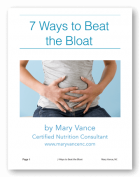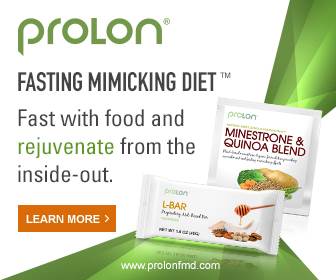Remember the days of yore, when being fat meant that you were affluent? That you made enough money to live high on the hog, to feed yourself and your family well? Obesity was equated to wealth.
Not anymore. Obesity is linked to diabetes, heart disease, high blood pressure and cholesterol, joint pain, and a host of other ills. Thin is certainly in right now. Study after study links calorie restriction with longer life span. Calorie restriction simply involves cutting calories from your daily diet: anywhere from 10 to 30 percent. Reducing your caloric intake is thought to improve health and slow the aging process.
In modern day America, we’re over-fed yet under-nourished. Most people are taking in too many calories, and we’re eating the wrong types of calories: refined carbs, white flour, too much sugar, processed foods, fast food, and too few nutrient-dense foods like leafy greens, good quality organic proteins, wild fish, complex carbs, and fruits. You know – natural foods that don’t come from a box. We’re also not burning these excess calories, and that’s why we’re an overweight nation. Overweight is many times a condition of deficiency; if the body is not getting the nutrients it requires from the skeletonized diet of refined foods you’re eating, you’ll constantly feel hungry and experience cravings, leading to over eating until your body gets what it needs.
Eating less is simply not the answer, however. Attention must be paid to consuming the right nutrient-dense foods: lean, organic proteins, vegetables, legumes, whole grains, good fats, and fruits, while minimizing sugar and processed foods and sodas. But can minimizing calorie intake lengthen lifespan?
From the Mayo Clinic website:
“Short trials of calorie restriction diets in people have shown some benefit. People undergoing calorie restriction, whether through a restricted diet only or through a combination of diet and exercise, typically have seen positive changes in their:
* Blood pressure
* Blood sugar
* Body fat percentage
* Cholesterol levels
* Heart rate
* Weight”
Sounds promising, right? Mayo also says that, “Despite the benefits, researchers have also identified risks of calorie restriction diets, including:
* Reduced bone density
* Loss of muscle mass
* Anemia
* Memory loss
* Dizziness
* Depression”
Your metabolic rate is the number of calories your body burns simply by just existing day to day, minus any activity or exercise. It’s the amount of energy required for you to exist. For the average 140 lb woman, this is about 1400-1500 calories (of course, this depends on height and build and a number of other factors). Eating below your metabolic rate can lead to muscle loss and can cause your metabolism to slow, leading eventually to weight gain, because your body will think it’s starving and will begin storing whatever you eat as fat in case you hit a famine again (quite brilliant, the human body).
Cutting too many calories and eating below your metabolic rate is not recommended. Some people with fast metabolisms or who are very active may not fare well on calorie restriction. But (unless you are underweight) we could all stand to eat a little less, and there is something to be said for cutting out the junk and thriving on nutrient dense, whole foods. These foods contain fewer calories but more filling fiber and essential nutrients than their processed counterparts, so it’s often hard to overeat when you’re on a natural foods diet anyway. While I don’t advocate calorie restriction per se in my practice, I am interested in following this research.

Mary Vance is a Certified Nutrition Consultant and author specializing in digestive health. She combines a science-based approach with natural therapies to rebalance the body. In addition to her 1:1 coaching, she offers courses to help you heal your gut and improve your health. Mary lives in San Francisco and Lake Tahoe in Northern California. Read more about her coaching practice here and her background here.






